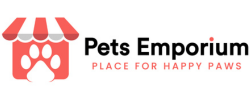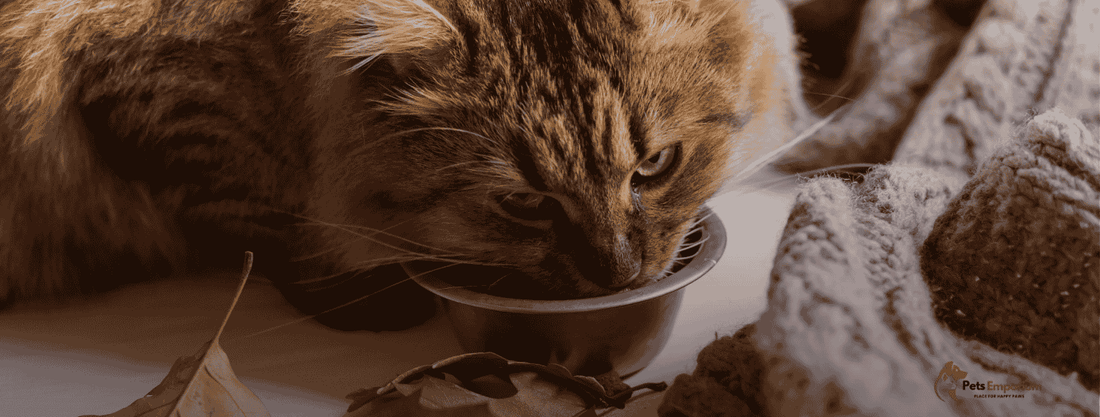Being a cat owner, choosing the right food for your cat is very important. Many cat foods in the market look good on the outside but may contain harmful ingredients inside. These ingredients can cause health problems like stomach issues, allergies, or even kidney damage over time. Sadly, some brands use cheap fillers, artificial colours, and preservatives just to save money. As a caring pet parent, you should know what to avoid. Thankfully, trusted pet supply stores like Petsemporium are helping raise awareness by providing safer, vet-approved products for your furry friends. Read on to learn the top 10 harmful food ingredients you should be aware of and how you can choose quality over compromise.
10 Harmful Cat Food Ingredients You Should Avoid
1. Tapioca Starch
Tapioca starch is used to hold kibble or wet food together. While not dangerous in tiny amounts, it’s just a filler with no real nutrition. Too much starch can lead to weight gain or upset stomachs, especially for pets who need a meat-based diet.
2. Artificial Colours
Artificial food colouring such as Red 40, Blue 2, and Yellow 5 are added so that food will be less palatable to cats. There is no nutritional benefit in these colourings. Plus, they can also cause issues of allergies and hyperactivity.
3. Corn, Wheat, and Soy
Cat food is frequently made up of corn, wheat and soy as a low-cost filler. Although they can increase the amounts of protein in the labels, they are not biologically natural to a pet. These fillers may lead to allergy, weight gain and upset stomach, and make the food lose its nutritional value for your pet.
4. Carrageenan
Carrageenan is taken out of red seaweeds to be included in wet foods. Although it is natural, it does leave some side effects of gastrointestinal inflammation. Your pet can also face diseases such as inflammatory bowel disease (IBD). Meanwhile, the dangers of ulceration and gastrointestinal discomfort among pets is also common.
5. BHA, BHT, and Ethoxyquin
They are unnatural preservatives that are mainly used to increase shelf life and can cause severe health issues. BHA (butylated hydroxyanisole), ethoxyquin and BHT (butylated hydroxytoluene) affect liver and kidney functions adversely.
6. Rendered Fat
Rendered fat is used to enhance the flavour of dry food, but it can also be a source of harmful microorganisms and toxins. The rendering process involves heating animal scraps, which may come from questionable sources. This fat can spoil easily and attract mold or bacteria, potentially leading to digestive upset and food poisoning.
7. Propylene Glycol
Used as a moisture-retaining agent, propylene glycol is a synthetic additive sometimes found in semi-moist foods. It is related to antifreeze and can cause red blood cell damage in cats. Though permitted in small amounts, regular consumption poses health risks. Its presence is hazardous to pets with existing health conditions or sensitivities.
8. Cellulose
Cellulose is a fancy term for plant fibre, often derived from wood pulp or other indigestible materials. While marketed as a fibre source, cats don't benefit from it since they are obligate carnivores. High levels of cellulose can interfere with nutrient absorption and offer no real value, potentially leading to gastrointestinal discomfort or malnutrition.
9. Excessive Salt
Sodium is necessary in small amounts, but too much salt in food can lead to dehydration, high blood pressure, and even kidney issues. Some manufacturers use salt to make food more palatable, but this comes at a health cost. Cats with kidney or heart conditions are especially vulnerable to the effects of high-sodium diets.
10. Sugar and Sweeteners
Added sugars, like corn syrup or sucrose, have no place in their diet. These ingredients are used to enhance flavour but contribute to obesity, diabetes, and dental problems. Cats don’t have taste receptors for sweetness, so these additives serve no benefit. Avoid foods that list sugar or sweeteners in its product.
Health Problems Cats Can Get from Bad Ingredients
Choosing a food based on harmful sources can cause significant health issues for your pet. Low-quality fillers such as corn, soy and by-products can lead to digestive problems, food allergies or food weight gain. There are artificial preservatives like BHA and BHT, which are shown to cause cancer and have long-term health effects.
Poor quality sources have the potential to cause poor skin conditions in some cats, itchy ears and matted, dull fur. The absence of nutrients such as taurine can cause heart diseases as well as loss of eyesight.
It’s a reality that feeding your pet poor-quality food can shorten its lifespan. Low-grade ingredients like fillers, by-products, and artificial additives may lead to serious health issues over time. Common problems include obesity, diabetes, kidney disease, and heart conditions. All of them can reduce your pet’s quality of life and longevity.
A lack of essential nutrients like taurine and omega fatty acids can also impact their vision, heart health, and immune system. Consistently eating unhealthy food weakens the body and increases the risk of chronic illness. Choosing high-quality, balanced food supports long-term health and helps your pet live a longer, happier life.
Hence, the behaviour or the appetite of your pet could also be impacted by chemical additives and artificial flavours. A bad diet deteriorates the immune system, and in the long run, one may develop a chronic disorder. When picking good, clean food, you can make your pet remain lively and healthy longer.
Safer Alternatives to Harmful Ingredients like BHA or BHT
More natural preservatives are safer alternatives to toxic ones, such as BHA and BHT, and will keep the product fresh without harming the health of your pet. Check the list to see that there are mixed tocopherols (Vitamin E source), ascorbic acid source (Vitamin C) and rosemary extract. These are safer natural preservatives and will do the same job of preserving your pet’s health.
Things To Consider When Checking Food Ingredients
Whenever selecting food, it is essential to focus on the list of ingredients so that every pet can be provided with the proper nutrients. Look for the ingredients first based on real animal protein (chicken, turkey, or fish is best). These animals are carnivores and must eat high-quality sources of protein.
Avoid by-products, artificial preservatives (such as BHA and BHT) and artificial colourings or flavours which can be damaging in the long run. Not all grain-free is necessarily good. Look for the grains which are a good nutrient source, and too much filler, like corn or soy, should be avoided.
Ensure the presence of taurine, which is a heart-building essential amino acid and essential in eye health. Overall wellness can be achieved with omega fatty acids, vitamins, and minerals as well.
Lastly, keep in mind the age and health issues of your pet and their diet when you choose food. Your veterinarian may be able to help identify the best formula available to your feline.
Conclusion
Your cat depends entirely on you to make the right dietary choices. Don’t let cost-cutting ingredients and unclear labels put their health at risk. By learning to identify harmful ingredients, you can ensure your feline enjoys a longer, happier life. If you're looking for high-quality, vet-recommended food in Pakistan, Petsemporium offers trusted options that prioritize your pet’s well-being. Choose smart, choose Pets Emporium for peace of mind.
Frequently Asked Questions
1. Why are meat by-products harmful to cats?
Meat by-products can include poor-quality scraps like organs or bones with inconsistent nutrition, possibly causing allergies or digestion issues.
2. Are all preservatives in cat food harmful?
Not all natural ones, like Vitamin E (mixed tocopherols), are safe. Avoid synthetic ones like BHA, BHT, and ethoxyquin.
3. How can I check if cat food contains harmful ingredients?
Always read the label. Look for named meat sources, avoid fillers, artificial colours, and chemical preservatives.
4. Is sugar added to cat food in Pakistan?
Yes, some brands include sugar or sweeteners to enhance taste. Avoid them as your pet doesn't need sugar, and it harms their health.

